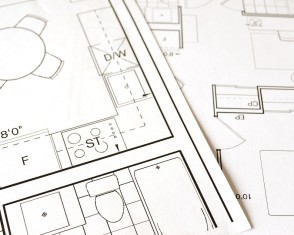What You Need To Know Before You Start Your Renovation
When you’re renovating your home for a wheelchair – shower, kitchen, or bedroom – there are a lot of factors to consider before you book a contractor. Here are the top five things you should know.
1. Considering your space
Most homes are only built to accommodate people walking through them, so there may be places in the house that require you to make tight turns or squeeze past furniture. Those types of things aren’t going to work when making space for a wheelchair; kitchens, for example, can be tricky if there’s an island or the dining room table is too close to a doorway. Keep in mind that an adult wheelchair needs about 60 inches of space to make a complete turn. You may look at some of your renovation choices differently knowing this.
2. Adjusting the doors
Many people don’t think twice about which direction a door opens, but that kind of thing can make a big difference for wheelchair accessibility. All doors that open inwards should be reversed and the handles should be changed to levers. Or, if you can make a big change, remove the doors completely as well as the door frames, even from the shower – wheelchairs will be able to pass through with ease this way.
3. Lowering the surfaces
Of course pretty much all counters are made with someone standing in mind. For a wheelchair-friendly home, you’ll probably need all the countertops to be lowered by approximately 6 inches. This goes for sinks too (although some pedestal sinks may not need to be adjusted). It may also be wise to install pull-out leafs in the counters for workspace to finish making the wheelchair kitchen completely accessible.
4. Changing the floors
This may seem like a minor thing at first, but if your house has wall-to-wall carpeting, you may have some thinking to do. Low-pile carpets can be okay for wheelchairs, but hardwood floors are best. In tiled kitchens, wheelchair-friendly anti-slip mats can go a long way. The same goes double for a wheelchair shower: anti-slip protection is mandatory for anywhere that will get wet. Changing your home’s flooring is a big undertaking, so it’s something to seriously think about.
5. Fixing the bathroom
The bathroom is one of our most intimate spaces and as such it is potentially the most important room to renovate. Grab bars should be installed by the toilet and in the shower/tub – if you don’t convert to a wheelchair shower, extra measures should be added to help with bathing (like a seat in the tub/shower). Toilet height will also need to be adjusted depending on the individual.
There are many other factors to consider when you’re making a house wheelchair accessible, but these are some of the most important things to decide upon before you even start.



